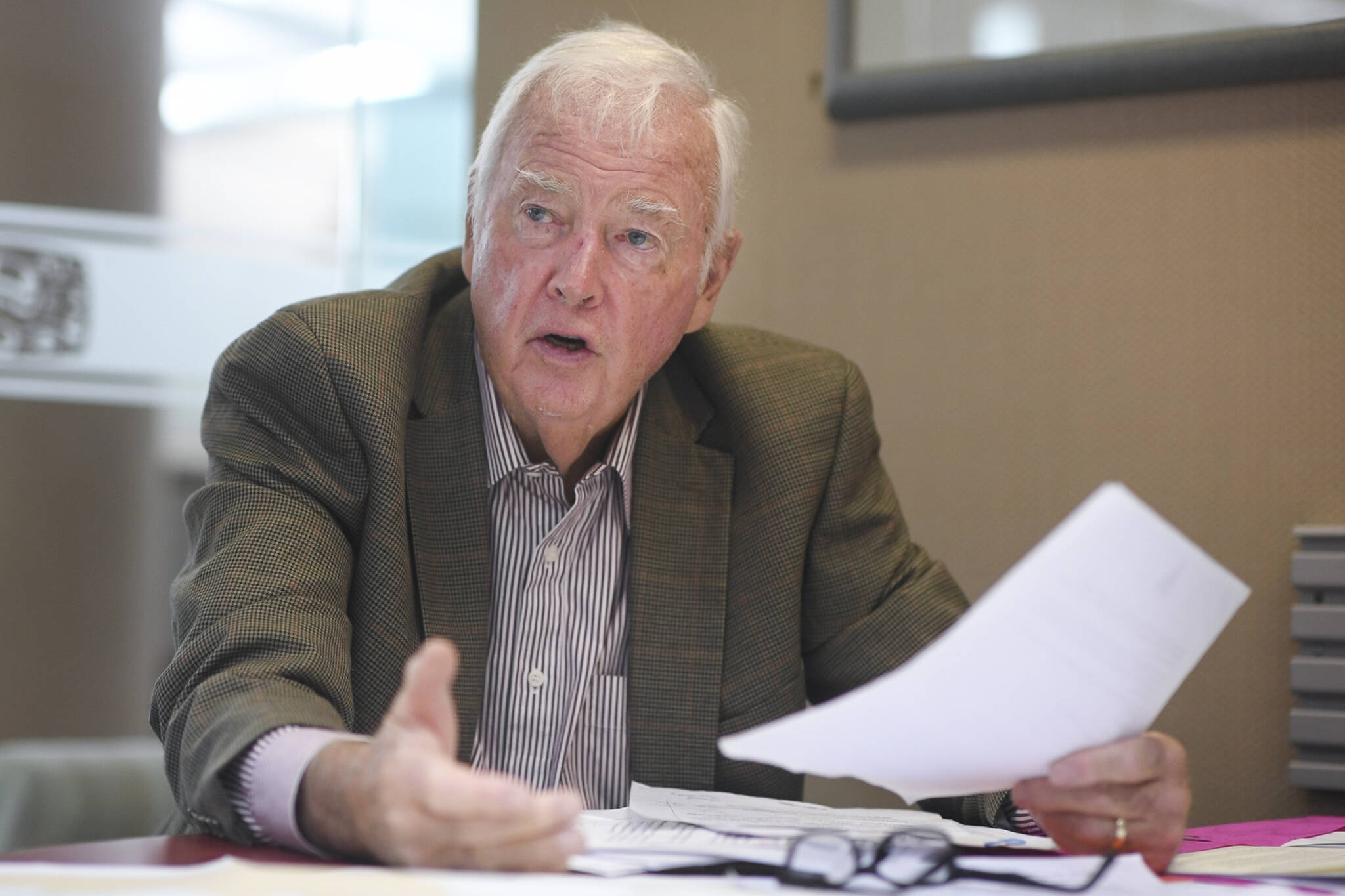The job of the Alaska Permanent Fund Corporation trustees is to focus on pursuing, maintaining and growing our fund. Instead, they are being sidetracked by their plan to open a satellite office in Anchorage by the end of the year. This is the first step in what will end up being a multiyear, disruptive, unnecessary and expensive move to Anchorage.
The plan to move the office from Juneau to Anchorage is analyzed in a May 10, 2023, memo to Ethan Schutt, Trustee Chair, from Mike Barnhill, the Permanent Fund’s Chief Operations Officer. (The memo may be seen on the Permanent Fund website.) It lays out options and costs (including personnel moving expenses) for an office in downtown or midtown Anchorage. It reviews the current practice of the Alaska Permanent Fund Corporation’s (APFC) collaborative working relationship with the Alaska Legislature, employee turnover issues, the evolving “working from home” environment, and the potential for satellite offices outside Alaska.
The Permanent Fund budget works its way through the Senate and House Finance Committees during each legislative session in Juneau, where all non-investment matters are worked out. If financial issues come up between sessions after the budget process is complete, they are discussed with the Legislative and Budget Audit Committee.
The APFC office should be located in Juneau, close to this action. In addition, the Legislature would have to approve the funds for a move. Before making a rash decision, the Permanent Fund Trustees should consult with the Legislative leadership as recommended by the APFC internal memo. In the long run, trust between the Permanent Fund and the Legislature must continue to exist for the good of all Alaskans.
The APFC employs 66 people. The investment staff is the critical component to the Permanent Fund’s financial performance. The Anchorage-based Trustees, all of whom favor moving the office to Anchorage, point to investment staff turnover as an issue impacting the Fund’s performance continuity. They contend that there would be less staff turnover if Permanent Fund investment professionals had the stimulus of being closer to other investment professionals.
This makes no sense. An APFC internal study shows pretty clearly that there is no APFC staff turnover problem — at least, not in comparison with state executive offices as a whole. That internal memo references a study of staff turnover at APFC and compares it with turnover in state executive branch offices for the last two decades. APFC turnover for the last 20 years — 12.6% (2003-2012) and 14.3% (2013-2022) — is almost identical to state executive turnover of 13.94% (2013-22). Moreover, the same study showed that only three of the current staff employees were interested in moving to Anchorage.
The Alaska Beacon reports that the claim is made that potential new hires would “potentially accept employment with the Permanent Fund if we had an Anchorage office but were not willing to look at Juneau.” There’s no means to verify this claim and, in any event, it is an absurd basis for determining where government agencies should be located.
The Trustees further argue that Anchorage would attract capable people who would stay longer with the APFC. That speaks for opening a satellite office in Seattle, San Francisco, or New York City, not Anchorage. As a no-cost alternative, the APFC could expand its “work from home” program for those who prefer not to live in Juneau — whether it be the Lower 48 or to the north.
In recent years, the Alaska Permanent Fund Corporation has consistently been in the news for all the wrong reasons: the controversial firing of Executive Director Angela Rodell, the refusal to explain how the $200 million provided to brokers for its Instate Investment Program is being spent, the failure to produce an annual report evaluating private equity firm investments in the fund (including one managed by one of the Trustee’s father), a projected shortfall of realized earnings over the next three to four years, and now the expenditure of funds to open a satellite office in Anchorage, which, again, will be the first step in moving the Permanent Fund to Anchorage.
Recently, the APFC staff has raised the concern that the Permanent Fund will be running out of realized earnings in the next three to four years — funds needed to help pay for the cost of government and for the dividend. The Permanent Fund Trustee’s efforts should be concentrated on the highest return for the shareholders of the state with minimum risk, rather than catering to their own convenience with an expensive and unnecessary move.
Frank H. Murkowski served as governor of Alaska from 2002-2006 and as a U.S. senator from 1980-2002.


